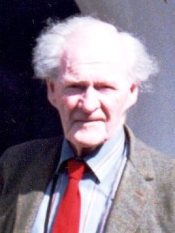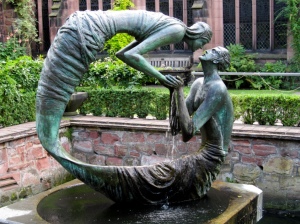 I came away from Philadelphia’s Verizon Hall on April 4th, bathed in music and blood.
I came away from Philadelphia’s Verizon Hall on April 4th, bathed in music and blood.
That was my response to The Passion According to St. Matthew, which the Philadelphia Orchestra, conducted by its Music Director Yannick Nézet-Séguin, presented on Holy Saturday.
Bach’s music held me in thrall, while I grouched silently about the theology, which was three hours of wallowing in sin. The only remedy for which was Jesus’s bloody death. In the words of a 21st century hymn: “On the cross as Jesus died, / the wrath of God was satisfied.”
Also, the Saint Matthew Passion sings the message that Jews, generation after generation, are to bear responsibility for Jesus’s blood.
R.S. Thomas should have been Bach’s librettist. He does not close his eyes to sinfulness:
Yes, that’s how I was, . . .
Careless of the claim
Of the world’s sick
Or the world’s poor; . . .
Nearing the end of the same book, he asks:
Why are my hands this way
That they will not do as I say?
RS acknowledges alienation from God – the sense of not living as God intends us to live. But RS does not belabor us with self-flagellant poetry as Bach’s librettist does. Nor does RS, with a few exceptions, interpret the crucifixion sacrificially. Rather, he views the no-longer-inhabited cross as representing the arms of God outstretched to enfold us in love:
. . . . .
Some of us run, some loiter;
some of us turn asideto erect the Calvary
that is our signpost, armspointing in opposite directions
to bring us in the endto the same place, so impossible
is it to escape love. . . .
For RS, the cross to be hymned is
. . . the uninhabited
cross. Look long enough
and you will see the arms
put on leaves. Not a crown
of thorns, but a crown of flowers
haloing it, with a bird singing
as though perched on paradise’s threshold.
Poems of R. S. Thomas quoted in this post:
“Yes, that’s how I was” – “Judgment Day,” Tares (1961), 20.
“Why are my hands this way” – “Here,” Tares, 43.
“Some of us run, some loiter” – “The Word,” Mass for Hard Times (1992), 71.
“Not the empty tomb” – untitled poem, Counterpoint (1990), 37.









